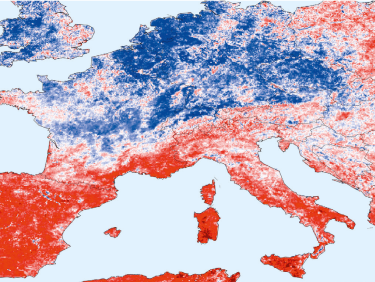Applications
Applications in all areas of university research drive the method development at IWR. Our colleagues come from all departments of the university, joining forces to identify shortcomings in tool development for innovative research questions. Applications are the driving force behind most of our collaborative research projects. Interdisciplinary teams of scientists cooperate to push the limits of scientific computing from the mathematical theory through algorithm development to implementation on dedicated hardware.

Application Fields @ IWR
Work groups at IWR come from all research areas of the university. While mathematics and computer science have a strong influence on method development, it is the application fields and their challenges that bring IWR to its full potential:
Medicine and Bioscience have a direct impact on our life and our health. Global Health brings questions from large patient studies back into the university, looking for patterns in human-centered datasets for the benefit of large parts of the population.
Molecular Material Science today is mostly unthinkable without models from both theoretical chemistry and molecular physics. This leads to classical questions in mathematical modeling, newly interpreted by what computers can and cannot solve today.
The Humanities have used quantitative methods for longer than it is widely known. With the use of digital humanities models, insights in areas such as archeology, art history, or social sciences can be upscaled both in size and speed for the benefit of the field.
Astrophysics is arguably one of the first fields to use scientific computing (at the time done by hand) to shape new models from observation data and data analysis. From the generation of our universe to its demise, models from astrophysics help us understand our world, large and small.
Environmental Sciences is one of the fields that most obviously uses simulation and ensemble methods to predict the future of our planet. Climate change and the pollution of the oceans are only two of the various fields that pose challenges to scientific computing, both for larger models and for faster calculations.
Engineering is a young discipline at Heidelberg University. Our department of engineering hosts several groups working in various areas of (mostly) molecular engineering, where results of simulations are the bridge between theory and experiment.